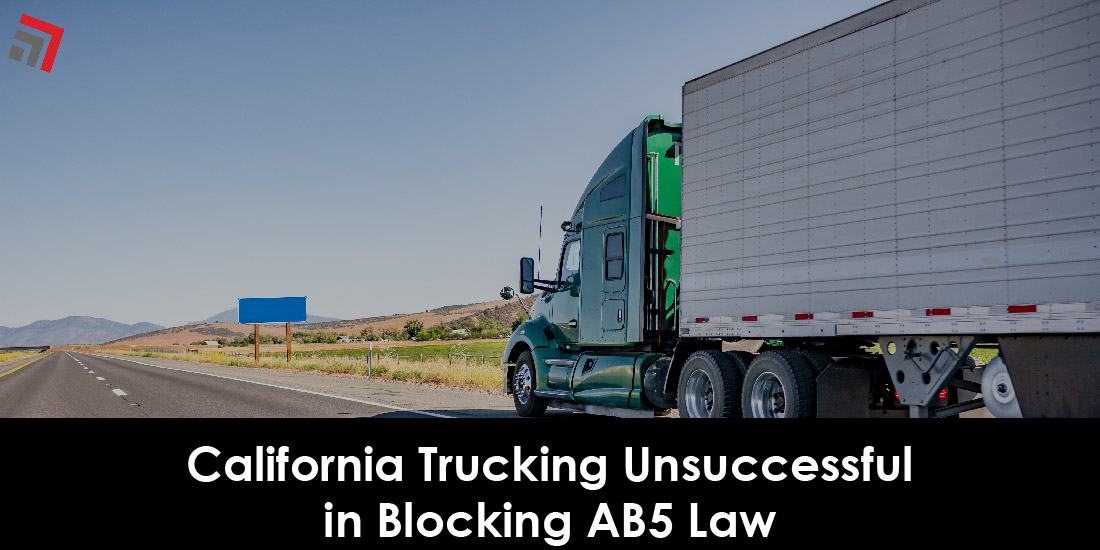Over the past few years, trucking stakeholders have perceived a particular form of regulation in California as an antagonizing force against the state’s trucking industry and its some 70,000 owner-operator truck drivers.
Signed into law in 2020, California’s Assembly Bill No.5 (AB5) governs independent contractor status across the state. The regulation has since enforced a stringent labor code that considers any hired worker providing labor or services to a hiring entity is an employee by default unless the employer can prove contractor status otherwise. Their proof must be in the form of satisfying all three criteria of AB5’s “ABC” test:
- The person (hired worker) is free from the control and direction of the hiring entity (employer) in connection with the performance of the work, both under the contract for the performance of the work and in fact.
- The person performs work that is outside the usual course of the hiring entity’s business.
- The person is customarily engaged in an independently established trade, occupation, or business of the same nature as that involved in the work performed.
The “B” part of the test is where prospects of proving contractor status appear futile for California trucking companies. Owner-operator (independent contractor) truck drivers performing hired work for these companies are essentially redefined under this provision as employees, leaving little to no legal footing to successfully prove otherwise.
When AB5 went into effect four years ago, the California Trucking Association (CTA) was granted an injunction which prohibited enforcement of the law onto the trucking industry. However, this ruling was eventually reversed. Since then, California trucking is now subject to AB5.
Trucking groups continue the fight
California’s trucking industry has not silently accepted its regulatory fate. Another leading industry group, the Owner-Operator Independent Drivers Association (OOIDA) cosigned a legal effort with the CTA to order a new injunction, which would again shield trucking from AB5.
This time around, the industry was not successful. Last month, a federal judge in California rejected the attempt to block the law from the trucking sector.
However, the outcome has not deterred CTA and OOIDA from taking further legal action. On Apr. 12, the two filed an appeal to the judge’s ruling with the U.S. District Court for the Southern District of California, despite legal experts agreeing that further contests are expensive and unlikely to succeed.
Final Thoughts
While California’s trucking industry continues to fight AB5, the new regulatory landscape has the potential to shift operations across the state. There are owner-operators who will be receptive to walking on as a full-time driver employee for a trucking company, however a fair portion of them will likely be stubborn to make such transition. While a risky career choice, many drivers prefer operating as independent contractors. Of course, they are responsible for their business expenses, but the liberty of owning their trucks and choosing which jobs to take on are certainly perks that will steer their interest away from a full-time job with one company.
In fact, California trucking companies have voiced concerns that some independent drivers operating in the state may even move their business to other states to avoid the complications of AB5.
Contact one of our team members if you have any questions regarding this topic or any others in domestic logistics.
More blogs similar to this:



Recent Comments